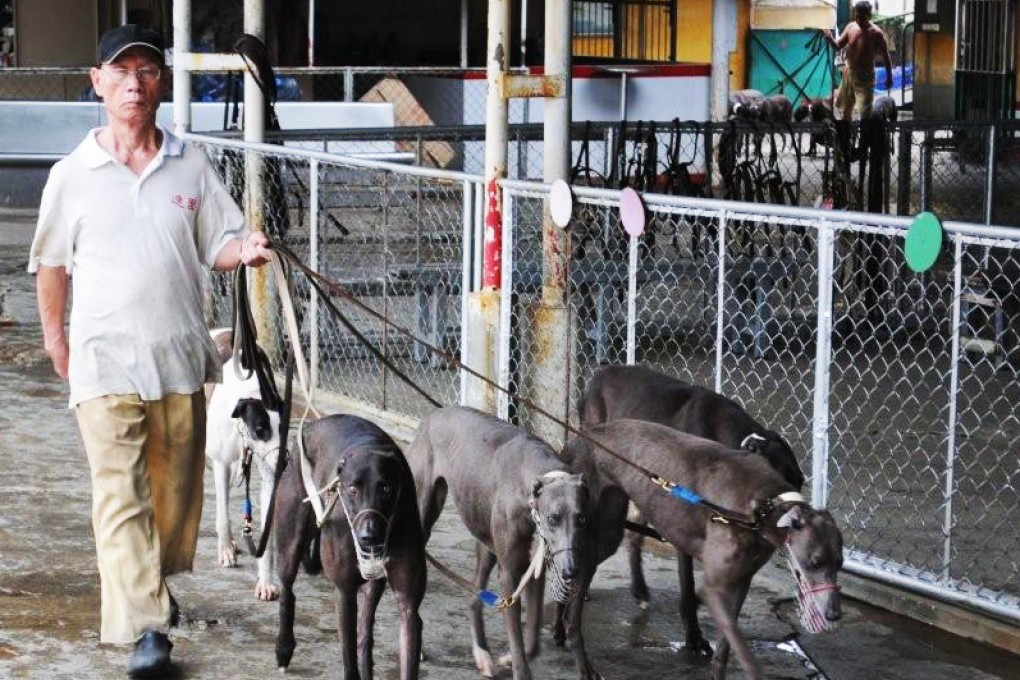The finishing line
The crumbling Canidrome is the final grim and unloving home for racing greyhounds unlucky enough to be sent to Macau. Simon Parry reports.

In a scruffy part of Macau, a pack of racing dogs enjoys a few intoxicating snorts of fresh air as they are led in groups of six around a deserted racetrack before being tied up in rows, examined by a veterinarian and then locked away in row after row of small steel cages. Marshalled by sombre, grey-faced keepers in a crumbling concrete compound ringed with high walls and barbed wire, the sleek, graceful animals seem like prisoners on death row being given a tantalising glimpse of freedom with a daily walk around the exercise yard.
The reality for these greyhounds at China's only legal dog-racing track, a shoddy and poorly attended stadium a few blocks from Macau's border gate, is arguably even bleaker: when they are released from their cages they - quite literally - run for their lives. As they spring from the traps at breathtaking speed to chase a mechanical hare, the odds are already stacked heavily against survival: finish in the top three and they will live to race another day. Finish outside the top three just a few times and their only prize will be a lethal injection.
The only sure bet is that within three years of arriving in Macau, every one of these greyhounds will be dead. Healthy, uninjured but simply not fast enough to win, the dogs here die at a rate of more than one a day. The chances of their being adopted as a family pet when their racing days are over, as happens with greyhounds in other countries, are zero. All that awaits them after their last race is death, usually at an age of no more than five - less than half their natural lifespan.
The Macau Canidrome, built in the 1930s, is unique in Asia, but is nonetheless a forgotten corner of Stanley Ho Hung-sun's gambling empire. While it is only a mile away from the territory's glitzy casino strip, the Canidrome seems a galaxy away, tucked away between low-rent housing blocks in a rundown quarter of the former Portuguese colony.
An eerie cacophony of howls reverberates around the district as the 800 dogs, who spend the majority of their brief lives in cages stacked two high and just big enough for them to turn around inside and never leave the Canidrome, strain at the leash as they are led onto the track for exercise and pre-race weighing. Every race night - on Mondays, Thursdays, Fridays and Saturdays - there are 18 races, with six dogs in each, watched from the stands by a pitifully small crowd of mostly elderly men, who pay an entrance fee of 10 patacas and lay down their bets at booths in the stadium basement.
Most of the punters who bet on the races do so in a handful of centres across Macau, to which the night's races are beamed live.
'Hardly anyone comes here anymore,' a weary official admits. 'They prefer to place their bets on the internet or in front of a television set.'